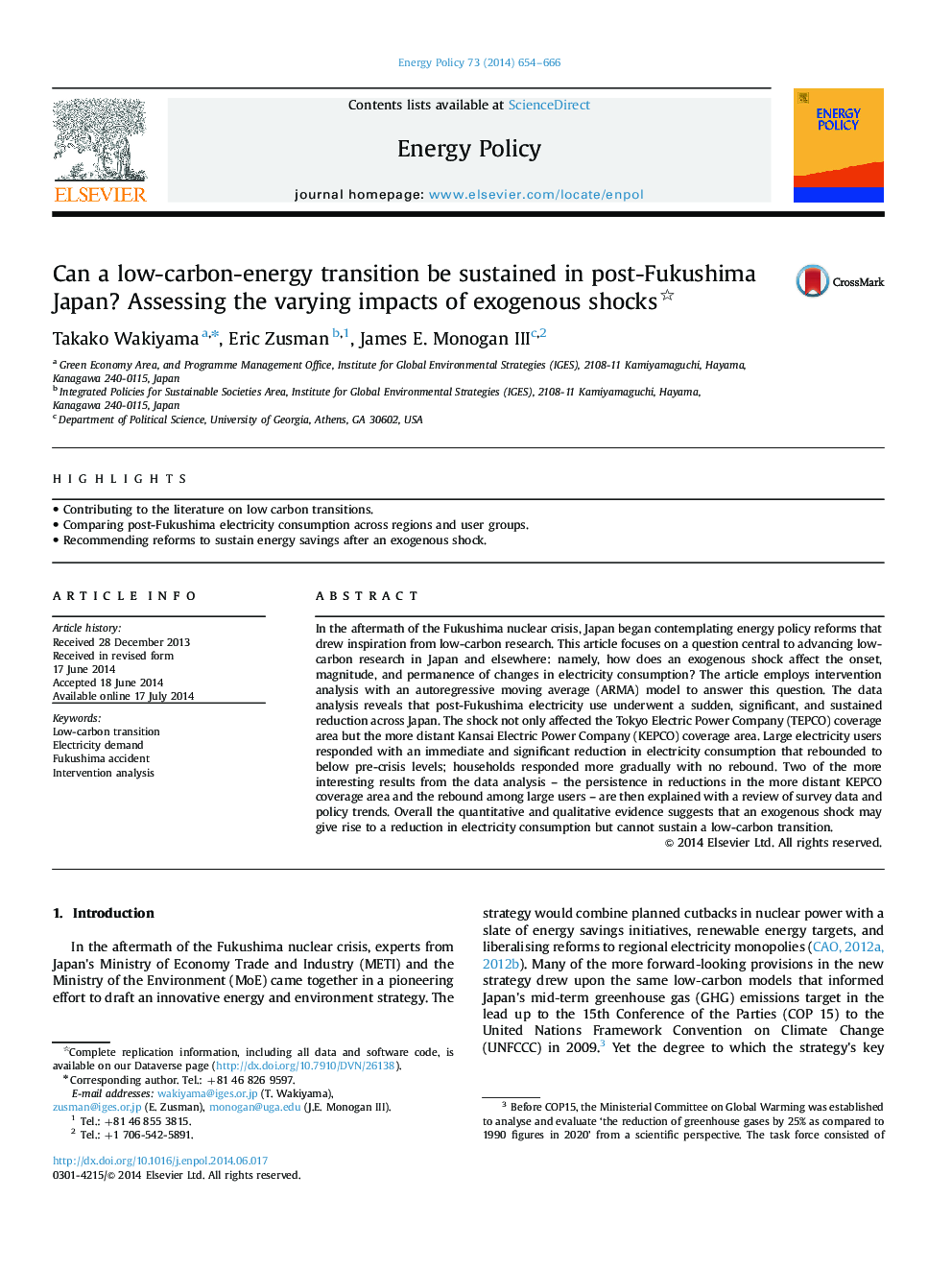| کد مقاله | کد نشریه | سال انتشار | مقاله انگلیسی | نسخه تمام متن |
|---|---|---|---|---|
| 7402094 | 1481285 | 2014 | 13 صفحه PDF | دانلود رایگان |
عنوان انگلیسی مقاله ISI
Can a low-carbon-energy transition be sustained in post-Fukushima Japan? Assessing the varying impacts of exogenous shocks
ترجمه فارسی عنوان
آیا پس از فوکوشیما ژاپن میتواند انتقال انرژی کم کربن را حفظ کند؟ ارزیابی تأثیرات مختلف شوک های خارجی
دانلود مقاله + سفارش ترجمه
دانلود مقاله ISI انگلیسی
رایگان برای ایرانیان
کلمات کلیدی
انتقال کم کربن، تقاضای برق، حادثه فوکوشیما، تجزیه و تحلیل مداخله،
موضوعات مرتبط
مهندسی و علوم پایه
مهندسی انرژی
مهندسی انرژی و فناوری های برق
چکیده انگلیسی
In the aftermath of the Fukushima nuclear crisis, Japan began contemplating energy policy reforms that drew inspiration from low-carbon research. This article focuses on a question central to advancing low-carbon research in Japan and elsewhere: namely, how does an exogenous shock affect the onset, magnitude, and permanence of changes in electricity consumption? The article employs intervention analysis with an autoregressive moving average (ARMA) model to answer this question. The data analysis reveals that post-Fukushima electricity use underwent a sudden, significant, and sustained reduction across Japan. The shock not only affected the Tokyo Electric Power Company (TEPCO) coverage area but the more distant Kansai Electric Power Company (KEPCO) coverage area. Large electricity users responded with an immediate and significant reduction in electricity consumption that rebounded to below pre-crisis levels; households responded more gradually with no rebound. Two of the more interesting results from the data analysis - the persistence in reductions in the more distant KEPCO coverage area and the rebound among large users - are then explained with a review of survey data and policy trends. Overall the quantitative and qualitative evidence suggests that an exogenous shock may give rise to a reduction in electricity consumption but cannot sustain a low-carbon transition.
ناشر
Database: Elsevier - ScienceDirect (ساینس دایرکت)
Journal: Energy Policy - Volume 73, October 2014, Pages 654-666
Journal: Energy Policy - Volume 73, October 2014, Pages 654-666
نویسندگان
Takako Wakiyama, Eric Zusman, James E. III,
